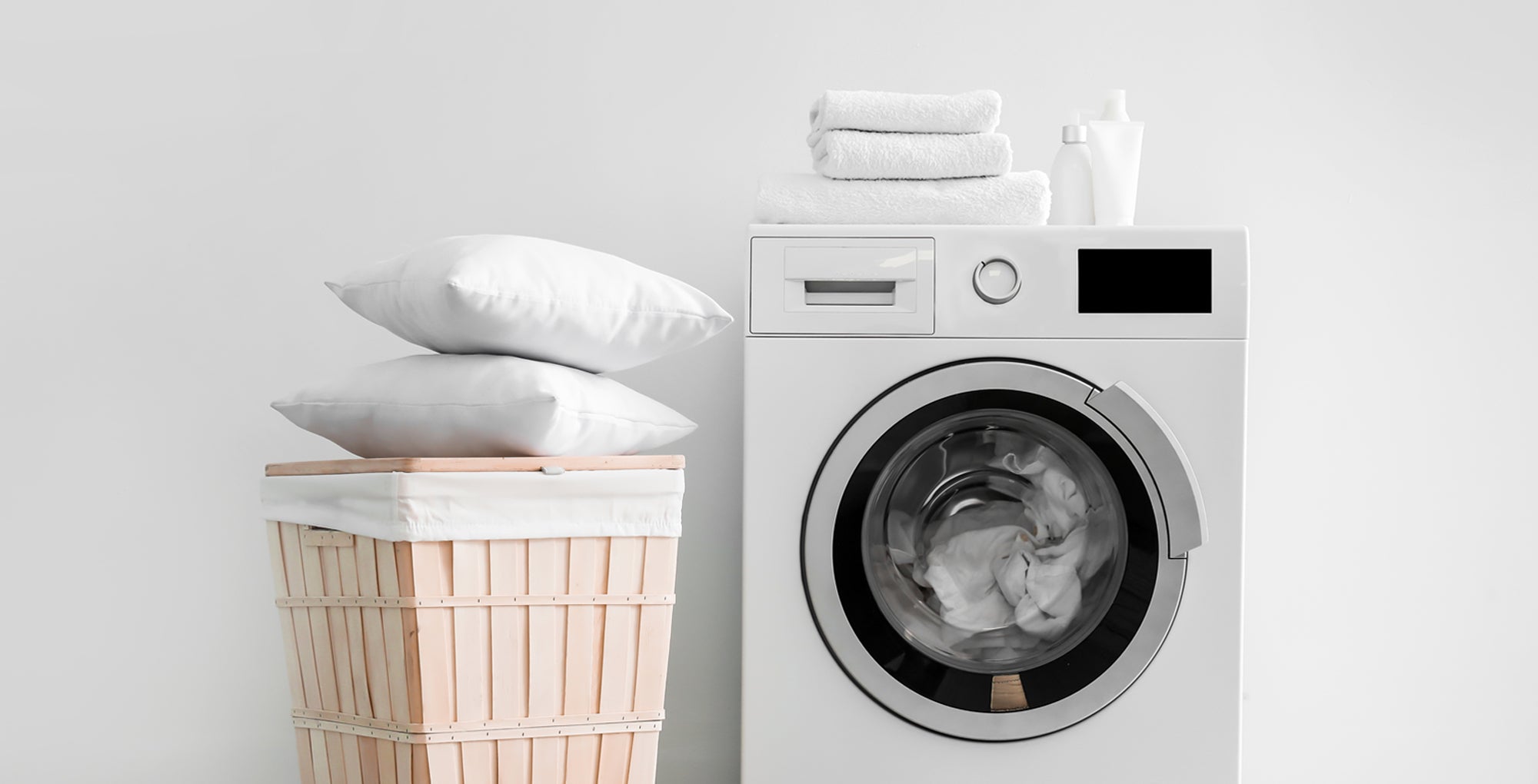Wash & Care Guide
Caring for your beddings isn’t as complicated as it seems! Here we’ve outlined how to properly care for them.

For Your Microfiber Sheets and Duvet Covers
Washing: For best results, machine wash your sheets and duvet covers in cold water on a gentle cycle.
Drying: Air dry or tumble-dry on low heat and remove them promptly.
For Your Cotton Sheets and Duvet Covers
Washing: For best results, machine wash your sheets and duvet covers in cold water on a gentle cycle using mild detergent.
Drying: Air dry or tumble-dry on low heat and remove promptly to avoid wrinkling and/or shrinkage. Iron on low heat if desired.
Pro Tips
- Use fabric softener for every other wash to keep your beddings soft and fresh
- Avoid using chlorinated bleach to prevent damage to cottons natural fibers
- Add ¼ cup of lemon juice to your wash to act as a natural brightener
- Wash your sheets every 1-2 weeks
- Separate laundry to ensure a clean wash and to avoid any damage
- To keep your beddings drying evenly and to decrease drying time, add wool dryer balls or 2-3 tennis balls to the dryer
For Your Comforters
Washing:
You should only wash your comforter every 5-7 years at the most, and avoid it if you can.
For spills or stains, you can blot the area with a mild cleaning agent (no bleach) on a white cloth. If a full wash is required, we recommend a machine wash in cold water on a gentle cycle. An oversized commercial or front-loading machine should be used.
It's best to use a mild detergent in your wash, and make sure it has been rinsed thoroughly, as detergent residue can cause damage to the material. Gently squeeze out the excess water before drying.
Drying:
Dry on a low-heat gentle or delicate cycle, if possible. This may take some time, so you can include some dry towels in the cycle to help absorb the moisture. Adding some Wool Dryer Balls, or 2-3 tennis balls, will help the fill move as it dries. Be sure the comforter is fully dry before storing, as even a slight dampness can cause unpleasant odors.
Another option is to take your comforter to be professionally cleaned. Dry cleaners are better equipped to handle large items like comforters, especially with regard to the lengthy drying process. However, this should also be done as infrequently as possible. Excessive cleaning can affect the down filling, and wear out the material.
Everyday Care
Washing can be avoided entirely by using a duvet cover on your comforter. This will protect it from small stains, as well as dust and body lotions/oils. However, if a cover isn't for you, there are other ways to keep your comforter in great condition:
- Weekly shaking/fluffing to redistribute the down and prevent clumping
- Air your comforter outdoors on a clothesline. This gets rid of odors and adds a fresh and extra fluffy feeling to the comforter
- Remove makeup/body oils/perfume before snuggling up with your comforter
